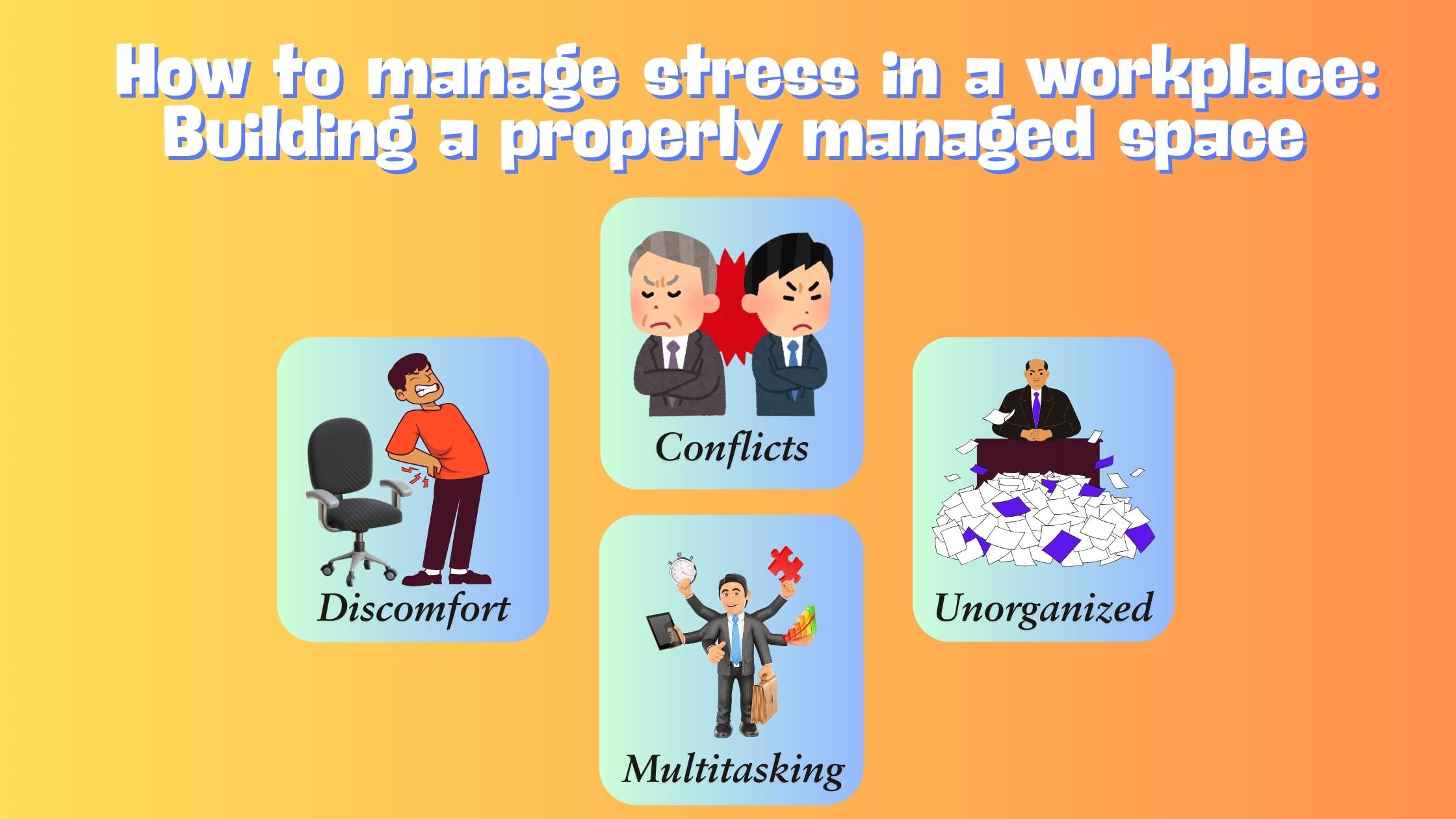
How to manage stress in a workplace: Building a properly managed space
Stress has become one of the common aspects in the workplace in modern professional life. Employees are often feeling overwhelmed due to factors such as increased workloads, deadlines, and frequent demands. For personal well-being and to increase overall productivity, effective management of workplace stress is vital. Building a well-managed space is one of the best ways for effective management to enhance mental clarity and attain work-life balance.
How to understand workplace stress?
Stress is caused due to excessive demands of the employer to surpass the capacity of employees. The factors that lead to this situation are excessive workload, insecurity of job, arguments with colloquies, poor control over tasks etc. The different forms of stress include fatigue, headaches, anxiety, irritability, emotional distress and cognitive reasons such as poor concentration, decision-making, etc. a person can experience problems such as burnout, job dissatisfaction and health problems due to long-term stress.
How to manage work stress?
Prioritization and Time Management
Time management can effectively avoid work stress. Based on factors such as urgency, fragmentation and importance, the tasks can be prioritized. You can use productivity tools such as calendars, reminders and task managers to streamline work. The Pomodoro technique emphasizes on working with short intervals and is used to increase efficiency and minimize stress.
How to create a Managed space
If a workplace is well-organized, then it leads to a significant reduction of stress. The work atmosphere should be clean, tidy, without any interruptions, and should be ergonomically designed. They can make some adjustments such as maintaining the right posture, optimizing lighting, dedicated desks, etc. to increase comfort and focus. The companies can also encourage workspaces that are shared to let employees unify and also give areas for focused and quiet work.
Relaxation techniques and practicing mindfulness
They can practice some techniques such as meditation, muscle relaxation, and deep breathing, to manage stress effectively. They can also practice mindfulness such as stretching, taking short intervals, focusing on breathing, etc.
Building Boundaries
You should try to maintain a work-life balance. The employees should effectively create boundaries between personal life and work to avoid burnout. They should prevent checking calls or emails after working hours and should devote time for relaxation and hobbies to maintain well-being.
Asking for support
To combat stress, they should ask for help from counselors, supervisors, and colleagues without hesitation. If you communicate openly about problems such as challenges or workload concerns, then you can build a supportive environment. They should also support problems such as Employee Assistance Programs that provide counseling and resources for managing stress.
Healthy lifestyle choices and physical well-being
Physical health directly affects the mental well-being of an individual. Employees should give prioritization to factors such as a balanced diet, regular workout, and enough sleep to retain resilience against workplace stress. Employers provide support by providing wellness programs such as incentives for fitness, snacks for well-being etc.
Building a positive work culture
You can significantly reduce stress levels by enforcing a positive culture. Employers should build supportive and inclusive culture so the employees feel valued. They can promote teamwork, accomplishments, and foster open communication for employers to feel motivated.
Open communication with HR
you should openly interact with HR in an organization who resolves your problems effectively. You should not hesitate to ask for help and should openly interact with the issues in the organization and also implement the practices as suggested by HR.
Improve your performance.
You should learn to manage your tasks effectively by understanding the nature of the work. Openly communicate with your colleagues and clarify your doubts. identify the root cause of weaknesses in your task. Always believe in yourself and you can improve performance.
Final thought
To maintain proper productivity and healthy work culture, managing stress is essential. You should effectively set boundaries, practice mindfulness, and build a positive work culture. The employers and employees should collaboratively work for mental well-being, and productivity and to promise that the policies devised are for the welfare of both parties. Workplace stress can be managed effectively if you maintain a work-life balance.



.jpg)
